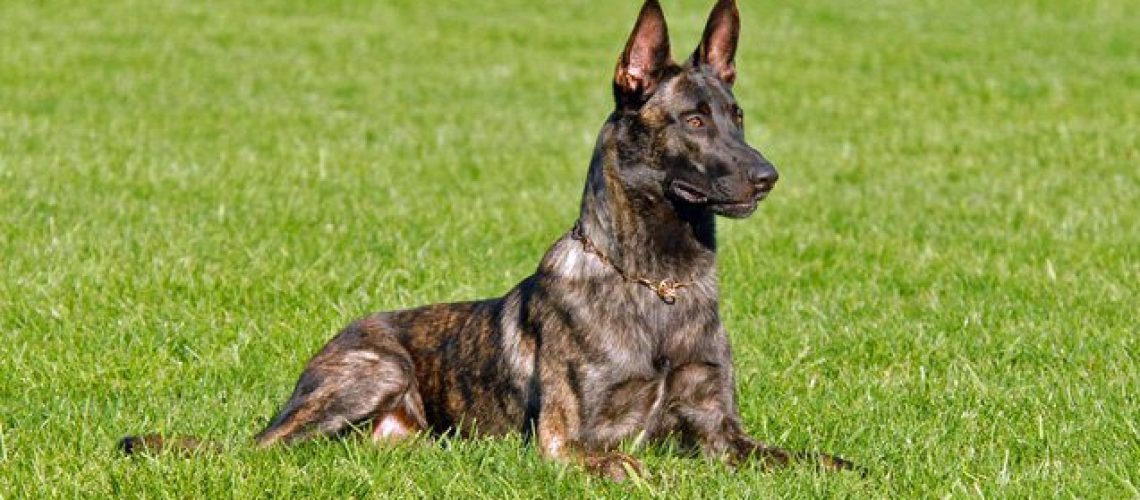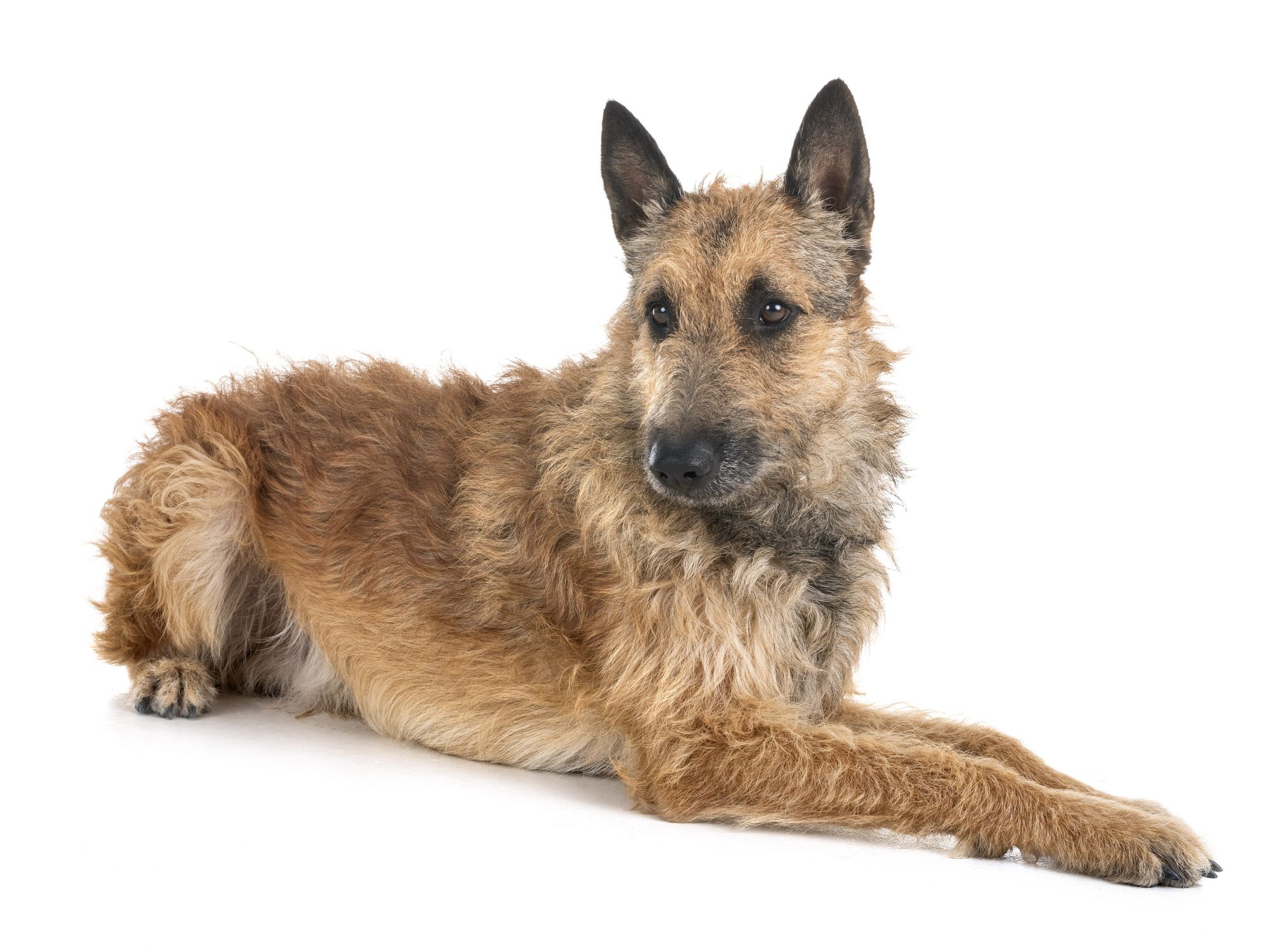Key Takeaways:
- The Dutch Shepherd is a versatile and intelligent dog breed that excels in various activities, including herding, guarding, and search and rescue.
- They have a strong work drive and require regular mental and physical stimulation to prevent boredom and destructive behavior.
- Dutch Shepherds are known for their loyalty and protective nature towards their families, making them excellent watchdogs.
- Proper training and socialization from an early age are crucial for this breed to ensure they grow up to be well-behaved and obedient dogs.
- Care should be taken to provide the Dutch Shepherd with a balanced diet, regular exercise, grooming, and routine veterinary check-ups to maintain their overall health and well-being.
Are you a dog lover? If so, get ready to discover the fascinating world of Dutch Shepherds, also known as Dutch Herders. These incredible dogs possess a unique set of characteristics that make them stand out from other breeds. By understanding their traits and learning how to care for them properly, you can experience the joy and companionship that comes with owning one of these remarkable animals. Whether you're considering getting a Dutch Shepherd or simply curious about this breed, delving into this subject will provide you with valuable insights that can enhance your relationship with dogs in general. So, let's explore the world of Dutch Shepherds together and unlock the secrets behind their charm and loyalty!
What is a Dutch Shepherd and what makes it unique?
A Dutch Shepherd is a medium-sized dog breed that originated in the Netherlands. They are known for their intelligence, athleticism, and versatility. One of the things that make Dutch Shepherds unique is their distinctive brindle coat, which can come in various shades of brown, silver, or gold. Their coat is also short and dense, making it easy to maintain.
Dutch Shepherds are highly energetic dogs and excel in various activities such as obedience training, agility, herding, and even search and rescue work. They have a strong work ethic and love having a job to do. This breed is also known for its loyalty and protective nature towards its family.
Physical Appearance
The Dutch Shepherd has a well-muscled body with a square-shaped build. They have a medium-length muzzle with dark almond-shaped eyes that express alertness. Their ears are erect and pointed, giving them an attentive look.
- Medium-sized dog breed
- Square-shaped build
- Erect ears
- Distinctive brindle coat
Personality Traits
Dutch Shepherds are intelligent and quick learners. They are highly trainable but require consistent guidance from an experienced handler. These dogs thrive on mental stimulation and enjoy tasks that challenge their problem-solving abilities.
- Intelligent
- Trainable
- Mentally-stimulated
- Loyal & Protective towards family
Understanding the temperament and behavior of a Dutch Shepherd
The temperament of a Dutch Shepherd can vary from dog to dog, but they are generally known for being confident, loyal, and protective. They have a strong prey drive and may exhibit herding instincts towards children or other animals in their household.
While Dutch Shepherds can be friendly and affectionate with their family members, they may be reserved or aloof around strangers. Early socialization is crucial to ensure they grow up to be well-rounded dogs who can interact positively with different people and animals.
Prey Drive
The Dutch Shepherd has a high prey drive, which means they have a natural instinct to chase after small animals. This behavior can make them unsuitable for homes with small pets such as rabbits or hamsters. However, with proper training and socialization, they can coexist peacefully with other larger pets like dogs.
Protectiveness
Dutch Shepherds are protective of their family and territory. They make excellent watchdogs due to their alertness and tendency to bark at unfamiliar sounds or people approaching their home. While this protective nature can be beneficial, it's essential to provide them with proper training and guidance to prevent overprotective behaviors.
Caring for a Dutch Shepherd: grooming and exercise needs
Grooming Needs
Dutch Shepherds have a short, dense coat that requires regular brushing to keep it clean and free from tangles. A weekly brushing session using a slicker brush or a grooming mitt will help remove loose hair and prevent matting. Additionally, their nails should be trimmed regularly to avoid overgrowth and discomfort. It is also important to clean their ears regularly to prevent infections.
Exercise Requirements
Dutch Shepherds are highly energetic dogs that require plenty of exercise to keep them happy and healthy. Daily walks or jogs are essential, but they also benefit from more vigorous activities like playing fetch or participating in agility training. Engaging them in mentally stimulating games such as puzzle toys or obedience training can also help fulfill their exercise needs. Providing them with enough physical and mental stimulation will prevent boredom and the development of destructive behaviors.
Are Dutch Shepherds good with kids and other pets?
Dutch Shepherds can make excellent family pets when properly socialized from an early age. They are generally good with children, but supervision is always recommended, especially with younger kids who may not understand how to interact with dogs appropriately. With proper training and socialization, Dutch Shepherds can also get along well with other pets in the household, including cats and smaller animals.
Socialization Tips
To ensure that your Dutch Shepherd gets along well with kids and other pets, it is crucial to expose them to different environments, people, and animals from a young age. Enrolling them in puppy socialization classes can be beneficial as they provide opportunities for positive interactions with other dogs and people. Teaching your children how to interact gently with the dog by avoiding rough play or pulling on their ears or tail is also important.
Training a Dutch Shepherd: importance of mental stimulation
Dutch Shepherds are highly intelligent dogs that thrive on mental stimulation. Training them not only helps establish boundaries and good behavior but also provides the mental challenges they need to stay engaged and happy. Consistency, positive reinforcement, and rewards-based training methods work best for this breed. Incorporating obedience exercises, trick training, and interactive games into their daily routine will keep their minds sharp and prevent boredom.
Training Tips
When training your Dutch Shepherd, it is essential to be patient and consistent. Break down commands or tricks into smaller steps to make it easier for them to understand and succeed. Use positive reinforcement techniques such as treats, praise, or playtime as rewards for good behavior. Avoid harsh punishments or negative reinforcement methods as they can damage the trust between you and your dog.
Potential health issues in Dutch Shepherds
Like any breed, Dutch Shepherds may be prone to certain health issues. While they are generally healthy dogs, it is important to be aware of potential conditions that may affect them. Some common health concerns in Dutch Shepherds include hip dysplasia, elbow dysplasia, progressive retinal atrophy (PRA), epilepsy, and allergies.
Healthcare Tips
Regular veterinary check-ups are crucial for maintaining your Dutch Shepherd's health. Your veterinarian can perform screenings for genetic conditions like hip dysplasia or PRA and provide appropriate preventive measures or treatments if necessary. Maintaining a balanced diet with high-quality food specific to your dog's needs can also contribute to their overall well-being.
Lifespan of Dutch Shepherds and tips for a happy, healthy life
Dutch Shepherds have an average lifespan of around 10-14 years when properly cared for. To ensure they live a happy and healthy life, it is essential to provide them with proper nutrition, regular exercise, mental stimulation, and routine veterinary care. Additionally, maintaining a loving and supportive environment where they feel secure and loved is crucial for their overall well-being.
Tips for a Happy, Healthy Life
- Feed your Dutch Shepherd a balanced diet that meets their nutritional needs.
- Provide regular exercise to keep them physically fit and mentally stimulated.
- Engage in training sessions to establish boundaries and strengthen the bond between you and your dog.
- Schedule regular veterinary check-ups to monitor their health and address any potential issues promptly.
- Create a safe and comfortable living environment with plenty of toys, bedding, and space for them to relax.
- Show them love, affection, and attention to ensure they feel valued as part of the family.
In conclusion, the Dutch Shepherd is a loyal and intelligent dog breed that requires regular exercise and mental stimulation. With proper care and training, they can make excellent companions for active individuals or families willing to provide them with the attention they need.
What is the personality of a Dutch Shepherd?
The Dutch Shepherd is a lively and intelligent breed that is known for its athleticism and alertness. It still possesses the herding instincts that it was bred for. Although it is independent and can be somewhat stubborn, it is also known to have a strong personality.
Can Dutch Shepherds be house dogs?
Dutch shepherds require ample physical activity and mental stimulation. While it is possible to keep a Dutch shepherd in an apartment as long as they are provided with sufficient daily exercise, a farm or house with a fenced-in yard is the ideal environment.
Are Dutch Shepherds high maintenance?
Taking care of a Dutch Shepherd breed involves ensuring they get plenty of physical and mental exercise to keep them happy and well-adjusted. It is important to provide them with ample opportunities to play, run, and engage in specific tasks. As a herding breed, it is advisable to keep them on a leash when they are outside of their yard.
Do Dutch Shepherds like to cuddle?
Dutch Shepherds typically have a stronger bond with their families and are more protective. They may stay close to you or enjoy cuddling in your lap. It is important to help all dogs become accustomed to being alone from a young age, but it's especially crucial for clingier breeds like Dutch Shepherds, as their attachment can potentially lead to separation anxiety.
Do Dutch Shepherds calm down?
Dutch Shepherds were originally bred for work, but they have the ability to relax and adapt their energy levels based on the situation. They make great pets and enjoy spending time with their owners, especially in active households.
Will a Dutch Shepherd protect you?
Dutch Shepherds are excellent protection dogs due to their versatility, intelligence, and trainability. They have strong protective instincts and, with proper training, can become the ultimate protection dog.

















